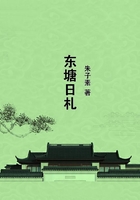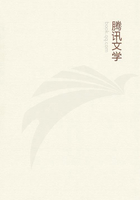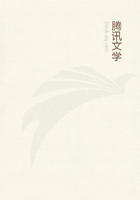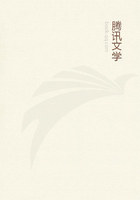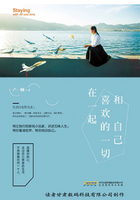Science and art have arrogated to themselves the right of idleness, and of the enjoyment of the labor of others, and have betrayed their calling. And their errors have arisen merely because their servants, having set forth a falsely conceived principle of the division of labor, have recognized their own right to make use of the labor of others, and have lost the significance of their vocation; having taken for their aim, not the profit of the people, but the mysterious profit of science and art, and delivered themselves over to idleness and vice--not so much of the senses as of the mind.
They say, "Science and art have bestowed a great deal on mankind."
Science and art have bestowed a great deal on mankind, not because the men of art and science, under the pretext of a division of labor, live on other people, but in spite of this.
The Roman Republic was powerful, not because her citizens had the power to live a vicious life, but because among their number there were heroic citizens. It is the same with art and science. Art and science have bestowed much on mankind, but not because their followers formerly possessed on rare occasions (and now possess on every occasion) the possibility of getting rid of labor; but because there have been men of genius, who, without making use of these rights, have led mankind forward.
The class of learned men and artists, which has advanced, on the fictitious basis of a division of labor, its demands to the right of using the labors of others, cannot co-operate in the success of true science and true art, because a lie cannot bring forth the truth.
We have become so accustomed to these, our tenderly reared or weakened representatives of mental labor, that it seems to us horrible that a man of science or an artist should plough or cart manure. It seems to us that every thing would go to destruction, and that all his wisdom would be rattled out of him in the cart, and that all those grand picturesque images which he bears about in his breast would be soiled in the manure; but we have become so inured to this, that it does not strike us as strange that our servitor of science--that is to say, the servant and teacher of the truth--by making other people do for him that which he might do for himself, passes half his time in dainty eating, in smoking, in talking, in free and easy gossip, in reading the newspapers and romances, and in visiting the theatres. It is not strange to us to see our philosopher in the tavern, in the theatre, and at the ball. It is not strange in our eyes to learn that those artists who sweeten and ennoble our souls have passed their lives in drunkenness, cards, and women, if not in something worse.
Art and science are very beautiful things; but just because they are so beautiful they should not be spoiled by the compulsory combination with them of vice: that is to say, a man should not get rid of his obligation to serve his own life and that of other people by his own labor. Art and science have caused mankind to progress.
Yes; but not because men of art and science, under the guise of division of labor, have rid themselves of the very first and most indisputable of human obligations,--to labor with their hands in the universal struggle of mankind with nature.
"But only the division of labor, the freedom of men of science and of art from the necessity of earning them living, has rendered possible that remarkable success of science which we behold in our day," is the answer to this. "If all were forced to till the soil, those VAST results would not have been attained which have been attained in our day; there would have been none of those STRIKING successes which have so greatly augmented man's power over nature, were it not for these astronomical discoveries WHICH ARE SO ASTOUNDING TO THE MIND OF MAN, and which have added to the security of navigation; there would be no steamers, no railways, none of those WONDERFUL bridges, tunnels, steam-engines and telegraphs, photography, telephones, sewing-machines, phonographs, electricity, telescopes, spectroscopes, microscopes, chloroform, Lister's bandages, and carbolic acid."
I will not enumerate every thing on which our age thus prides itself. This enumeration and pride of enthusiasm over ourselves and our exploits can be found in almost any newspaper and popular pamphlet. This enthusiasm over ourselves is often repeated to such a degree that none of us can sufficiently rejoice over ourselves, that we are seriously convinced that art and science have never made such progress as in our own time. And, as we are indebted for all this marvellous progress to the division of labor, why not acknowledge it?
Let us admit that the progress made in our day is noteworthy, marvellous, unusual; let us admit that we are fortunate mortals to live in such a remarkable epoch: but let us endeavor to appraise this progress, not on the basis of our self-satisfaction, but of that principle which defends itself with this progress,--the division of labor. All this progress is very amazing; but by a peculiarly unlucky chance, admitted even by the men of science, this progress has not so far improved, but it has rather rendered worse, the position of the majority, that is to say, of the workingman.
If the workingman can travel on the railway, instead of walking, still that same railway has burned down his forest, has carried off his grain under his very nose, and has brought his condition very near to slavery--to the capitalist. If, thanks to steam-engines and machines, the workingman can purchase inferior calico at a cheap rate, on the other hand these engines and machines have deprived him of work at home, and have brought him into a state of abject slavery to the manufacturer. If there are telephones and telescopes, poems, romances, theatres, ballets, symphonies, operas, picture-galleries, and so forth, on the other hand the life of the workingman has not been bettered by all this; for all of them, by the same unlucky chance, are inaccessible to him.

